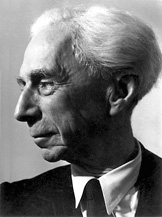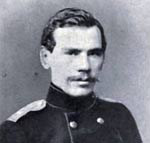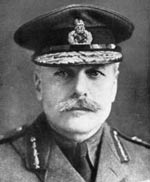Bertrand Russell (1872 – 1970) Mathematician, pacifist and political activist.
Short Biography Bertrand Russell
Bertrand Russell was born 18 May 1872 in Trellech Monmouthshire, Wales. His family were part of the British aristocracy, with a reputation for a liberal outlook.

Following his father’s death, he was looked after by his grandparents. He particular, the Countess Russell was a dominant figure in Russell’s early life. She was a strict Presbyterian Christian, but also influenced Russell, with her belief in social justice.
Russell’s adolescence years were lonely and depressing. He said he felt suicidal during this time, but his fascination with mathematics encouraged him to persevere. In 1890, he won a scholarship to study Maths at Trinity College Cambridge. He quickly distinguished himself as an outstanding mathematician and became a fellow of Trinity College after graduating. Despite having a keen scientific mind, he also developed a love of literature, in particular, the poetry of Percy B. Shelley, who he adored. He also gained a lifelong interest in politics, primarily from a liberal, socialist perspective.
In 1894, he married a Quaker Alys Smith. However, the marriage wasn’t a success and after a long period of separation, they divorced in 1921. He went on to marry four times, and became an advocate of ‘free love’.
In 1903, he published his most important work ‘Principia Mathematica‘. This made him world famous in the field of maths and he became a fellow of the Royal Society in 1908.
As a lecturer at Cambridge University, he became acquainted with the genius student, Ludwig Wittgenstein. Russell spent much time dealing with the questions and emotional instability of Wittgenstein. Though this was draining for Russell, he was fascinated by Wittgenstein, who he considered a genius.
During the First World War, Russell was one of the few intellectuals who engaged in pacifist activities. He formed the ‘No Conscription Fellowship’ which anticipated and campaigned against the conscription law of 1916. In 1917, he helped Siegfried Sassoon, the celebrated war poet, draft a statement against the war. He was dismissed from Trinity college in 1916 for a conviction under the Defence of the Realm Act. He also spent six months in Brixton prison for speaking against inviting the US into the war.
After the war, he visited Russia in 1920. Initially, he had been enthusiastic about the Russian revolution, hoping it would provide an opportunity to offer freedom and equality. However, he was not impressed by his visit and felt disappointed by Lenin. He wrote a book “The Practise and Theory of Bolshevism” which was highly critical of Communism.
During the Second World War, by 1940, Russell changed his pacifist stance, feeling that the menace of Hitler meant the lesser of evils was fighting to rid Europe of Hitler.
After the Second World War, he published A History of Western Philosophy (1945) which became a best seller and provided him with a secure income throughout his life.
“The trouble with the world is that the stupid are cocksure and the intelligent are full of doubt.”
– Bertrand Russell
He became a noted intellectual celebrity, often appearing on BBC programmes. In the 1960s, he became active in opposing the Vietnam war and was highly critical of American involvement in South Vietnam. He was also a well-known advocate of unilateral disarmament. One of his final statement’s was criticising Israel’s aggression in the Middle East, calling for Isreali withdrawal from the occupied territories of Palestine. He died of influenza in February 1970, at his home in Wales. There was no religious ceremony and his ashes scattered over Welsh mountains.
Citation: Pettinger, Tejvan. “Biography of Bertrand Russell”, Oxford, UK. www.biographyonline.net, Published 1st Feb 2009. Last updated 30th January 2017.
A History of Western Philosophy at Amazon
Related





